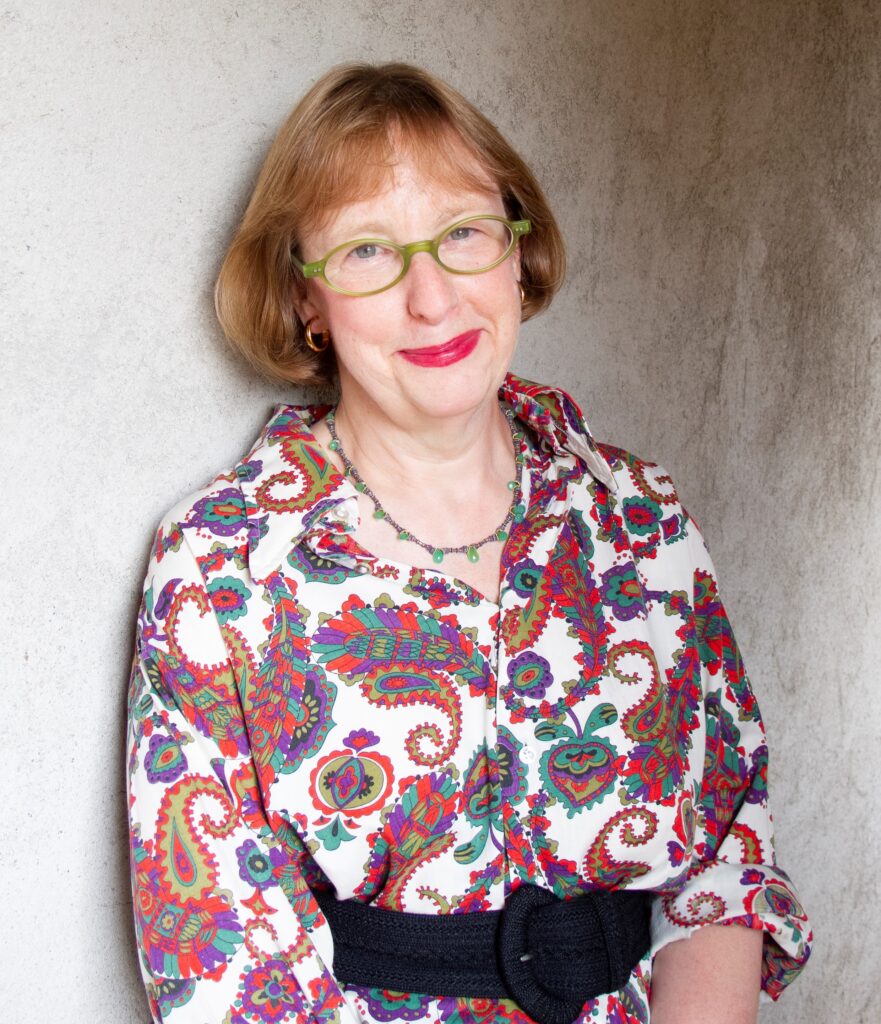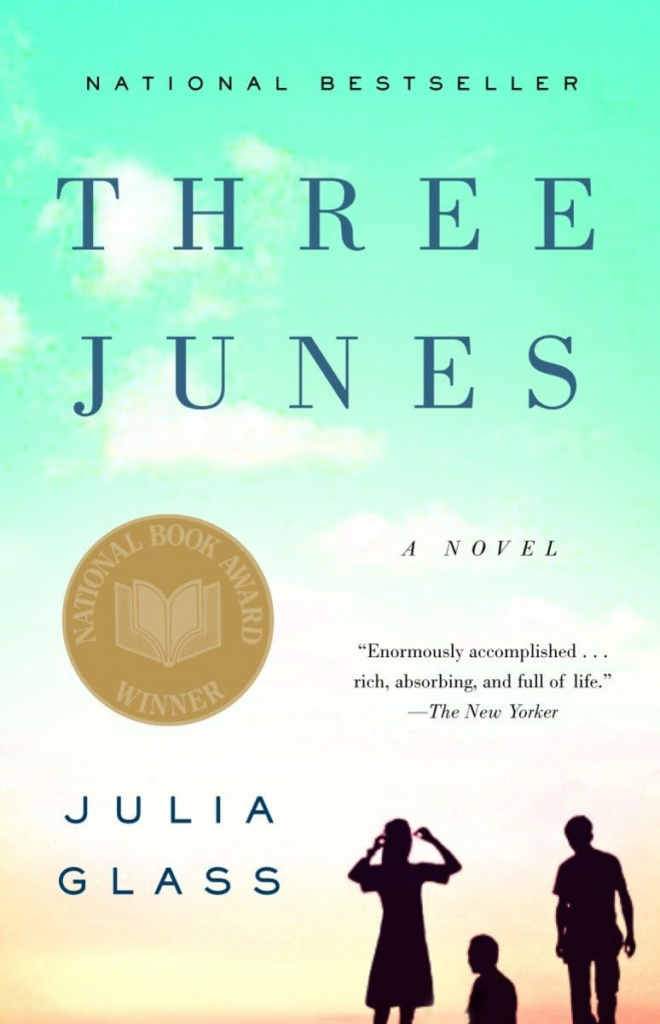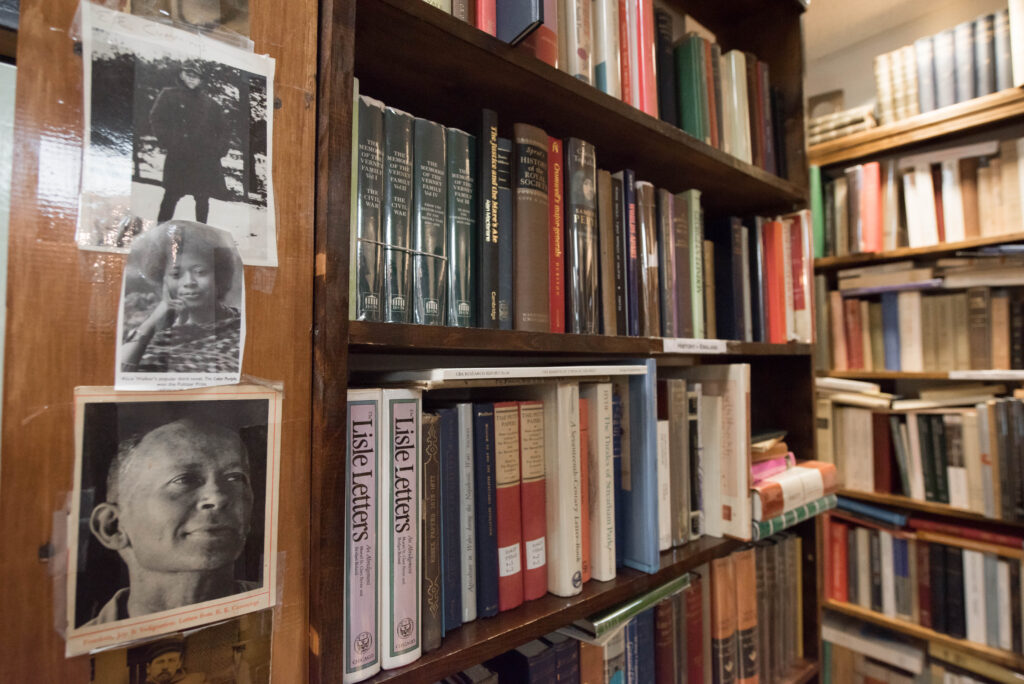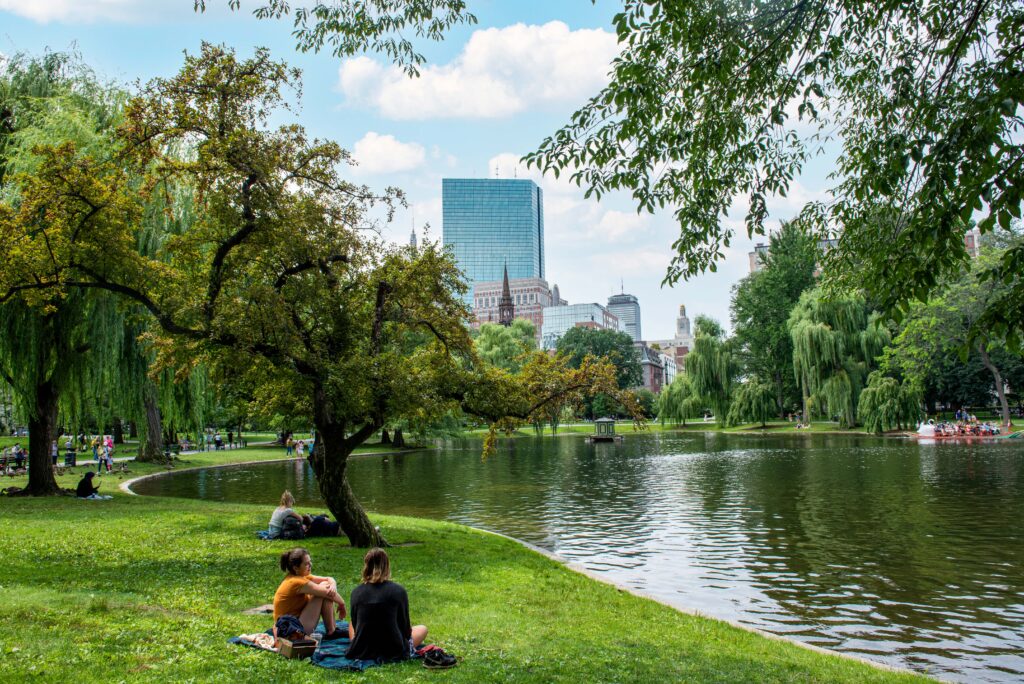Every November, the literary world, filled with publishers, editors, and authors, celebrates the distinguished National Book Awards. From November 7th through the 13th, the National Book Foundation honors groundbreaking voices that have crafted stories that resonate with readers around the world. A tradition since 1950, the National Book Foundation bestows five awards that recognize outstanding works. The categories include fiction, non-fiction, poetry, translated literature, and young people’s literature. And, according to the New York Times, the National Book Awards is one of “the world’s most prestigious literary prizes.”
To join the celebration, we’re spotlighting one of Emerson’s very own winners. I was honored to chat with Julia “Julie” Glass, Emerson’s Senior Distinguished Writer-in-Residence since 2016, about one of her many remarkable achievements. In 2002, Julie’s debut novel Three Junes was honored with the National Book Award for Fiction.
In this interview, Julie shares her journey from painter, to pet journalist, to award-winning author and professor. She offers insight into her creative process, the journey before and after winning the National Book Award, and advice for aspiring authors. Spoiler alert: she was rejected for seven years before finally hearing that magical word: “yes.”
Now the author of six published books, Julie has many accomplishments up her sleeve. She’s won the Binghamton University John Gardner Award for Fiction, the Sense of Place Award, and fellowships from the National Endowment for the Arts, the New York Foundation for the Arts, and the Radcliffe Institute for Advanced Study. Read on to hear about what it means to be part of the National Book Awards’ esteemed literary tradition and how it has shaped Julie’s role as a writer and teacher.
Can you tell us about your journey leading up to writing your book, Three Junes? What were some pivotal moments that shaped your voice as a writer?

“What surprises many people is that I didn’t see myself as a fiction writer until my early thirties. From college until then, my ambition was to succeed as a painter–but I supported myself with the language skills I somehow took for granted. I was a proofreader, then a copy editor, then a developmental editor–and then, of all things, a pet journalist! My first published writing was a column in Glamour magazine called ‘Animal Love.’
“But for several years, all this word-work went to subsidize my drawing and painting. Meanwhile, however, I was avidly, voraciously reading fiction: all the books I’d’ve read if I’d majored in English, and much more. I began to realize that no work of art will ever move me more than a great work of literature.
“So here I was, paying the rent as a writer; why wasn’t I trying my hand at stories? The next half dozen years were tough, because I had to start from scratch; I opted not to get an MFA but to tough it out on my own. I published my first short story (a runner-up in the Chicago Tribune’s Nelson Algren Fiction Awards) at age 37, and then I wrote a story that became a novella that ultimately became the novel THREE JUNES. It was published when I was 46 years old.
“In terms of what might have shaped my “voice,” I can say this much: I’m a very visual writer. Nothing gives me greater pleasure in writing my stories than putting my readers in a particular place–definitely the vestige of all those years I spent looking hard at the world around me and trying to render it on paper and canvas.”
What did the submission process look like? How did you feel when you learned you had won the National Book Award for Three Junes? Was it something you had imagined happening when you first began writing the book?
“Authors do not submit their own books for the National Book Award; publishers do. Because they spend money to do so, they’ll be very selective about what titles they put forward. The awards are administered by the National Book Foundation, which funds literacy programs of many kinds, and the money they bring in through administering the awards, including the high price of tickets to attend the ceremony, goes toward those worthy projects. I did not know this until my editor told me that my publisher would be nominating THREE JUNES for a number of awards. Since I had earned some good reviews but hadn’t hit bestseller lists, I was grateful.

“As for fantasizing about awards, the one I hoped to have a chance at was the PEN Hemingway Award, a prize for debut fiction only. The day I found out that my book was a finalist for the NBA, I was in shock (honestly, so was my publisher!). I found out through a phone call from the head of the foundation, who looked me up in the Manhattan phone book (yes, it was that long ago!). I was folding laundry and waiting for my two small children to be delivered home by a babysitter who took them to the park. At first I thought the call was a prank!
“I thoroughly enjoyed the month of being a finalist and knew I wasn’t favored to win. This is one of the few literary prizes whose winners are revealed only at the ceremony, not beforehand. (The judges meet that afternoon to make their final decisions.) As the chair of the fiction committee stood onstage and described the novel that he was about to reveal as the winner, my husband’s eyes filled with tears; he recognized right away that the book being described was mine, though I did not.
“Let me tell you that when your name is announced as the winner of such a huge honor in a room where one thousand people from the book world are in attendance, it is a miracle to stand up, let alone walk to the stage–where my trophy was handed to me by none other than Steve Martin! I knew that hardly anyone there had heard of me or my book before I was a finalist, but when I spoke the name of my agent–in acceptance remarks she had forced me to prepare, even though we ‘knew’ I wouldn’t win–a murmur went up through the room, and I understood how lucky I was to have been in her capable hands from the start. The year that followed was a fairytale.”
Since winning the National Book Award in 2002, have you noticed shifts in the publishing industry? What are some challenges and opportunities for emerging writers today, in your opinion?
“The publishing industry has changed enormously since 2002, when the impact of Amazon and e-books on book sales and on authors’ income were only just becoming apparent. Some publishers were also struggling for other reasons, so this was when a number of takeovers and mergers began to take place, most notably the growth of what is now the Penguin Random House group.
“One of the greatest challenges for emerging authors, in my opinion, is the outsize importance of social media. If I were trying to find an agent today, I’d probably fail; to many, part of a prospective author’s chances are tied not just to the quality of their work but to their ‘platform’ and number of followers.
“Another challenge is that as serious mainstream journalism withers, so does the coverage of book news. At the same time, if an author is enterprising, they can find publicity through the growing number of online book lovers’ podcasts, blogs, etc. But that’s hard, time-consuming, sometimes costly work. The days of handing that work over to the publisher are mostly gone. Many authors I know, even those at major publishers, now hire their own publicists.
“If you are a book lover, I urge you to go out of your way to support independent booksellers, both in person and online! (Go, bookshop.org!) Many wonderful books would sink beneath the waves, unread, if there were no dedicated booksellers, real people at real stores, to get them off shelves and into readers’ hands.”

For graduate students who are pursuing publication, how would you describe the role of resilience in building a writing career? What advice would you give them for navigating its highs and lows?
“This is a question to which the answers haven’t changed much since I started writing and hoping to publish my own stories. Looking back, I can’t believe I endured submitting stories to journals for seven years before finally hearing YES. Most sane people would have quit. So what I say, only half-joking, is that success often requires not just determination but denial. (That includes shutting out the voices of well-meaning relatives who keep asking when you’re going to get a ‘real job.’ Though by the way, you usually need such a job to feed and house your hungry, self-centered imagination.) I didn’t even have a community of fellow writers back then; now that I do, I am deeply grateful. That community–which is a great deal of what an MFA program offers–is essential as a place to share the slings and arrows of such a lonely pursuit.”
As someone who’s spent years in the writing industry, how do you sustain your creativity over time? How do you stay excited about new projects?
“I sustain my love of writing through my love of reading. I strive to offer inspiration as a writing instructor, but I’m quick to tell my students that their best teachers will always be the writers they read, many of them long dead. It’s crucial to read as much as possible and as widely as possible.
“Recognize your comfort zone and travel often beyond its borders. Only by staying curious do you stay creative. It’s also important to recognize that we’re not always on fire. Sometimes writing is drudgery, and sometimes you just stop writing for a while. It happens. I have never been an advocate of write-every-day-or-else. Writer’s block is as much a fallacy as plumber’s block or hairdresser’s block. Ever board a plane and hear that your flight’s been canceled due to pilot’s block?”
Is there one piece of advice that you hope will leave an impact on your grad students?
“One of the great gifts of writing as a student is the community you build. Whether you’re an undergraduate or graduate student, find the writers with whom you have compatible philosophies, who support your work yet push you to reach higher. The more different the content of your collective work, the better. Stay in touch with one another, even if you don’t always share the writing itself. Find solidarity for the work you do in solitude.”

As we look forward to next November’s National Book Award Week, Emerson is grateful to have an amazing resource like Julia Glass as a professor in the WLP department. Julie’s journey to success is a reminder that our wildest dreams are within our reach and that awards represent much more than simple recognition. Her path from painter to award-winning author of Three Junes and more is an inspiration to each aspiring writer within Emerson’s graduate community and beyond.


Matt
What a rich and inspiring read! I loved how you traced Julia Glass’s journey—from painter to pet-columnist to award-winning novelist—and made it accessible and authentic. Her story of seven years of rejection followed by a National Book Award for Fiction in 2002 (for Three Junes) really brought home the idea that persistence, voice and craft matter more than overnight success. I especially appreciated how she talked about turning life experience into story, the visual nature of her writing, and the way her advice for emerging authors reflects not just talent but endurance and humility. The interview doesn’t just highlight a milestone—it shows how that milestone is grounded in work, belief and community.
Thank you for spotlighting her as a mentor and model for writers at Emerson and beyond. It’s the kind of profile that gives hope and direction.